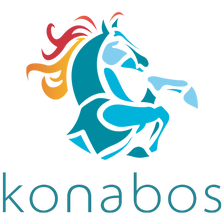How Proper Email Management Can Contribute to Saving the Planet
Akshay Sura - Partner
24 Aug 2023
A few months ago, while on a webinar with my friend and colleague Paul Williams, we had a deep conversation about sustainability. During this conversation, he mentioned, "All you have to do is delete your email to help the environment." This triggered a lengthy research project for me to dig deeper into whether it is that simple to make a difference.
In a world increasingly focused on sustainability and reducing carbon footprints, it's essential to recognize that even seemingly small actions can have a significant impact. Our email inbox is an often overlooked area where we can make a difference. In this blog post, we'll explore how managing your email properly can contribute to saving the planet, providing actionable steps and resources to guide you on this eco-friendly journey.
The Environmental Impact of Email:
It might come as a surprise, but our digital communication habits aren't as environmentally benign as we might assume. Emails, whether spam, attachments, or simple thank-you messages, contribute to carbon emissions through the energy-intensive infrastructure supporting their transmission and storage.
Research suggests that the energy consumption associated with email management and storage contributes to greenhouse gas emissions. Data centers, routers, and devices involved in sending, receiving, and storing emails all demand electricity, a significant portion of which often comes from non-renewable sources. As a result, our email habits indirectly contribute to the carbon footprint we aim to reduce.
Steps to Achieve Email-Induced Carbon Savings:
Delete Unwanted Emails: The first step is to declutter your inbox. Regularly delete unnecessary emails, particularly spam and outdated messages. This not only reduces your carbon footprint but also streamlines your digital life.
- Unsubscribe from Unwanted Subscriptions:
Many of us receive newsletters and promotional emails that need to be opened. Unsubscribe from these lists to prevent unnecessary data transmission and storage.
- Minimize Attachments:
Huge attachments significantly increase the energy required for email transmission and storage. Whenever possible, avoid sending attachments or opt for lighter file formats.
- Opt for Text-Only Emails:
Richly formatted emails with images and graphics increase the carbon footprint of the message. Choose plain text emails whenever feasible.
- Use Cloud-Based Storage Responsibly:
Cloud storage is convenient, but it requires energy-intensive data centers. Use it judiciously, deleting files you no longer need and avoiding redundant backups.
- Consider Email Providers' Sustainability:
Choose email providers that use renewable energy sources to power their data centers. This choice indirectly supports cleaner energy consumption.
- Enable Spam Filters:
Spam filters help reduce unnecessary data transmission and processing, saving energy and contributing to a greener email experience.
The Bigger Picture and Actionable Change:
While optimizing your email habits can contribute to reducing carbon emissions, it's essential to recognize that the impact of individual actions might seem small in the grand scheme. More significant energy-intensive activities, such as streaming, online shopping, and transportation, also warrant attention.
Resources and Further Reading:
- Ovo Energy's Report on Carbon Emissions from Emails
- BBC Future - The Surprisingly High Carbon Cost of Emails
- Carbon Literacy Project
Making Sustainable Email Management a Habit:
While the carbon savings from individual email optimizations might not immediately seem substantial, they symbolize a more significant principle: conscious consumption and responsible use. By practicing these eco-friendly email habits and sharing them with others, you contribute to a culture of sustainability that extends beyond the digital realm.
Reducing your email-related carbon footprint is an achievable goal that aligns with the broader mission of protecting our planet. Every email you refrain from sending, every attachment you compress, and every unnecessary subscription you unsubscribe from collectively create a more sustainable digital environment.
In a world where climate action is imperative, let's remember that even seemingly small changes matter, and collectively, they can lead to remarkable outcomes. So, start your journey towards greener email management today and be a part of the solution to save the world, one email at a time.

Akshay Sura
Akshay is a nine-time Sitecore MVP and a two-time Kontent.ai. In addition to his work as a solution architect, Akshay is also one of the founders of SUGCON North America 2015, SUGCON India 2018 & 2019, Unofficial Sitecore Training, and Sitecore Slack.
Akshay founded and continues to run the Sitecore Hackathon. As one of the founding partners of Konabos Consulting, Akshay will continue to work with clients to lead projects and mentor their existing teams.



Share on social media